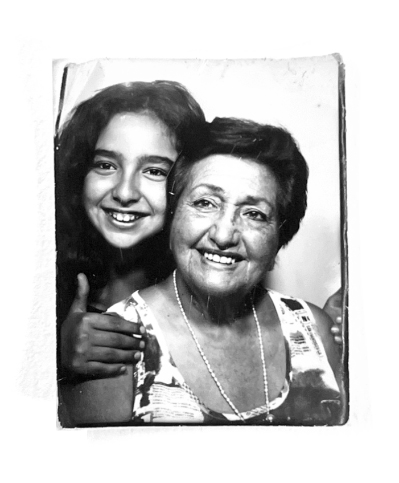| Lifestyle |
| Yeyes and nainais, opas and omas | |
|
|
 Ximena Maite Villegas Cabrolier with her grandmother in Berlin, Germany, in 2006 (COURTESY PHOTO)
On sunny days, families come to visit the campus of my university. Not only parents with young children, but also adult children with their senior parents, and even elderly couples take walks along the beautiful Liwa River that runs through the campus. Seeing them, I am reminded of the past, when my mother and I were the caretakers of my grandmother. This journey was never easy, and it was further influenced by social factors that reveal key cultural values of China and my home country Germany. In China, it is expected that parents stay with their oldest son's family when they grow old. The Confucian concept of filial piety has significantly influenced Chinese society. It calls for honoring and respecting your parents, elders and ancestors, and in return being honored when you grow old. In Germany, almost nobody takes care of their elders. My mother and I were often asked why my grandmother lived with us, and even now I recite my answer by heart: "We were the only ones she recognized and trusted, the pandemic facilitated full-time caretaking while working and studying, and elderly homes are too expensive." If I answered honestly, I would say that my grandmother had been an amazing woman who deserved to be cared for by the people who loved her most and that I wanted to make her last years on Earth comfortable. Usually, I compare taking care of an elderly person to raising a child. Lately, however, I conclude that there are different nuances to this comparison. Adults take care of children by teaching them how to live life and finally, these children grow into adults themselves. Children become the fruits of the plants we cultivate. For the elderly, the process is quite the same, but the result is the opposite. One reminds them who they once were, and keeps their bodies clean and their minds alive, but in the end, the elderly leave our world. Anyone who knew them is left behind with memories of what once was. Death is not like in the movies. Death can be slow, both for the ones dying and the ones who continue living. For three years, each week, each month, I slowly said goodbye to my grandmother. From 2019, when she would prepare her morning coffee daily, until 2022, when she was unable to communicate any of her wants and needs. My mother and I were with my grandmother through it all. In the process of my grandmother's dying, we died too. The moment of her passing was silent, peaceful. I remember the bright sky over Berlin, visible from the hospital room. The window was slightly open, filling the room with a melody of children playing on a nearby school ground. I put my hand on her chest to feel her heartbeat. Between her last breath and her last heartbeat, 10 minutes passed. The heart does not just stop. There is not one last big beat and then nothing. The heartbeat loses its rhythm and grows weaker, and the weaker it becomes, the more frantically it keeps beating in its quest for a few more seconds of life. Even today, I feel her final heartbeats in the palm of my hand when I hear children playing on the basketball courts of our campus. Passing by sons and daughters pushing their parents' wheelchairs through the parks of Shanghai, I feel teleported to the days we would do the same with my grandmother, far away in another country, on another continent. It sounds contradictory, but since arriving in China, I have felt closer to my late grandmother, even though she never stepped foot in this country. It fills me with warmth whenever I see families taking care of their elders, because I know that somewhere, a Nainai (grandma) or Yeye (grandpa) is receiving the same love as my Oma (grandma) once did. BR The author is a German student at East China Normal University in Shanghai Copyedited by G.P. Wilson Comments to yanwei@cicgamericas.com |
|
||||||||||||||||||||||||||||
|